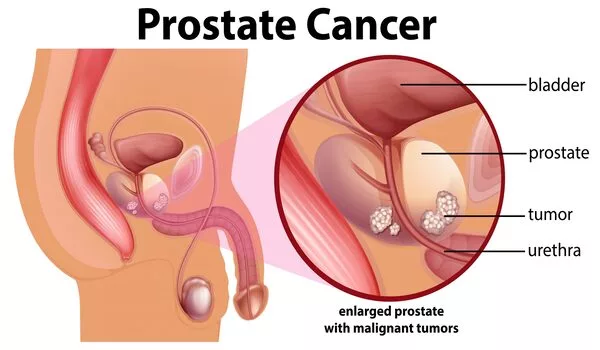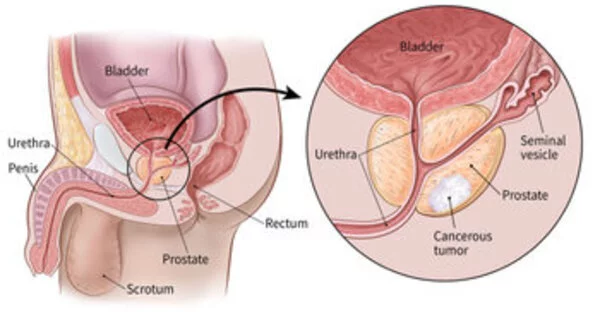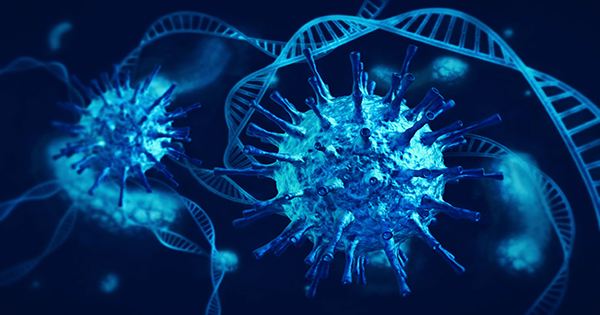Cancer develops when cells in the body begin to proliferate uncontrollably. Cancer cells can develop in almost any part of the body and spread to other parts of the body. Prostate cancer develops when cells in the prostate gland begin to proliferate uncontrollably. The prostate gland is only found in men. It produces some of the fluid found in sperm.
Researchers have made an important discovery about the early stages of prostate cancer. According to a new study, the prostate as a whole, including cells that appear normal, differs in men with prostate cancer. It implies that tissue cells all over the prostate are primed and ready to develop prostate cancer. This means that it may be better to treat the whole prostate rather than only the areas in the prostate that have cancer. The team hope their work could help scientists better understand the causes of prostate cancer, and even prevent it altogether.
Researchers at the University of East Anglia have made an important discovery about how prostate cancer develops. A new study published today reveals that the prostate as a whole, including cells that appear normal, differs in men with prostate cancer.
It implies that tissue cells throughout the prostate are primed and ready to develop prostate cancer. This means that it may be better to treat the entire prostate rather than just the cancerous areas. The researchers hope that their findings will help scientists better understand the causes of prostate cancer and even prevent it entirely.
The samples we studied included tissue that comes from the cancer and tissue from elsewhere in the prostate, which looks normal down the microscope. This produces a massive amount of data and by applying a large amount of computer power we can determine the differences that have occurred in the DNA, giving us insight into how the cancer grows.
Prof Brewer
Lead researcher Prof Daniel Brewer, from UEA’s Norwich Medical School, said: “Prostate cancer is the most common cancer in men and kills one man every 45 minutes in the UK. Often, when men are diagnosed with prostate cancer, groups of cancer cells can be found in more than one location within the prostate. We wanted to know if this is because of changes in ‘normal’ prostate cells throughout the prostate.”
Cancer is driven by changes in DNA, the genetic code of life, that appear in every cell. The team studied the DNA code in 121 tissue samples from 37 men with and without prostate cancer.
Prof Brewer said: “The samples we studied included tissue that comes from cancer and tissue from elsewhere in the prostate, which looks normal down the microscope. This produces a massive amount of data and by applying a large amount of computing power we can determine the differences that have occurred in the DNA, giving us insight into how cancer grows.”

“We discovered that ‘normal’ prostate cells in men who had prostate cancer had more mutations (DNA changes) than ‘normal’ prostate cells in men who did not have prostate cancer. We created maps to understand where the different mutations occurred based on the genetics of the samples examined. And we demonstrated that in most men, normal cell mutations differ from cancer cell mutations.”
“In men with prostate cancer, ‘normal’ prostate cells appear to provide a favorable environment for prostate cancer cells to develop and grow. In other words, the entire prostate is primed and ready to develop prostate cancer as a result of an unidentified biological process. This work has improved our knowledge of how prostate cancer first starts to develop and might one day give us clues as to how to prevent or treat it.”
“And it shows that it may be better to treat the entire prostate rather than just the cancerous areas,” he added.
According to Dr. Hayley Luxton, Senior Research Impact Manager at Prostate Cancer UK: “This groundbreaking new study demonstrates for the first time how normal cells in the prostate can aid in the growth and spread of prostate cancer. The researchers discovered that normal prostate cells in men with prostate cancer have specific genetic changes that cause them to behave like rich compost, creating an ideal environment for prostate cancer cells to grow and develop. These findings provide important new insights into the early stages of prostate cancer, which may one day provide us with clues as to how to prevent it.”
















